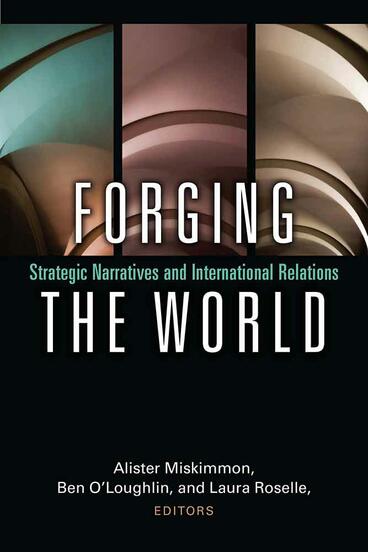Forging the World
Strategic Narratives and International Relations
Showcases a range of empirical studies that highlight the potential, inclusivity, and durability of the strategic narrative approach to International Relations
Description
Forging the World brings together leading scholars in International Relations (IR) and Communication Studies to investigate how, when, and why strategic narratives shape the structure, politics, and policies of the global system. Put simply, strategic narratives are tools that political actors employ to promote their interests, values, and aspirations for the international order by managing expectations and altering the discursive environment. These narratives define “who we are” and “what kind of world order we want.”
Alister Miskimmon is Professor of International Relations and Head of the School of History, Anthropology, Philosophy and Politics and Queen's University, Belfast. Ben O’Loughlin is Professor of International Relations and Co-Director of the New Political Communication Unit at Royal Holloway, University of London. Laura Roselle is Professor of Political Science and International Studies at Elon University.
Reviews
“In this fascinating volume, Miskimmon, O’Loughlin and Roselle deploy their dynamic referent of strategic narratives more broadly than ever before. From methods, to ethics, to a flurry of rich empirical areas like political economy, international organizations, nationalism, great power identity, the erudite and dynamic contributions delineate the functions, promises, and limits of strategic narratives all around us. The book also serves as a manual to politically engage a world where strategic narratives continue to play such an important role. The writing, analysis, methods, illustrations and most of all the implications of the arguments advanced in this book make Forging the World required reading for scholars throughout the social sciences and humanities.”
—Brent J. Steele, University of Utah
“This is an excellent contribution to IR theory and to the growing interest in narrative analysis in this field. It will be well-cited by scholars doing narrative research, but also scholars interested in public diplomacy, nation branding, and rhetorical and discourse analysis.”
—Jelena Subotic, Georgia State University
“It will be a ‘must-read’ not only for those focused on international political communication, but for those in the contemporary study of IR as well. This is a well-crafted book that will have a broad and interested readership both inside and outside of academia.”
—Sarah Oates, University of Maryland

